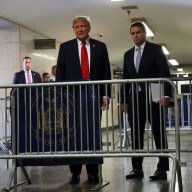We instinctively equate fuel efficiency with fuel conservation, but they are completely different concepts. If fact, fuel efficiency can actually lead to more fuel consumption.
This disturbing notion was first documented in a scholarly way, back in 1865, by the British economist, W. Stanley Jevons.
He argued that the technological improvements, which increased the amount of energy one could extract out of a certain amount of coal, actually led to more coal use, not less. The notion has since been known as the Jevons Paradox.
I had my own Jevons Paradox moment this past weekend. I made an extra run to my ancestral bungalow, 100 kilometres away, mostly because I had access to a very efficient vehicle — the cute and zippy Chevrolet Sonic.
With the Sonic’s highway fuel consumption rating of 5.1 L/100 km, the 200 km round trip burned up about 11 litres of regular, at $1.22 per, for an estimated expenditure of about 13 bucks.
If my only vehicle option had been my ’67 Jaguar E-type, I wouldn’t have gone, because the round trip would have cost me about $35 in premium fuel, about $2 in heavyweight engine oil and about a day or two off my life expectancy, due to the physical and emotional stress of watching the Jaguar’s coolant-temperature gauge flirting with disaster for two solid hours.
But I did have the Sonic, so I went. Net result: I used 11 “more” litres of gasoline than I would have, had I been Sonic-less.
We take more car trips and drive more annual kilometres than we did 40 years ago, and that means we consume more gasoline than we did 40 years ago, even factoring in the fantastic fuel-efficiency gains we’ve made over the same period.
Now, we’re contributing significantly less green-house gases per vehicle trip, because the vehicles run a lot cleaner, so that’s something.
But if we collectively think we’ll fix everything by chipping away at the fuel numbers, we won’t, because the more fuel- efficient vehicles become, the cheaper it becomes to consume fuel. We’re on a path to efficiently consuming more and more fuel.
Economists, especially those with a free-market bent, tell us there is one surefire way to change consumer behaviour — the brute force of high price.
But do we want a world where fuel prices are so high only the rich get to drive?
I say, “nay.”
Actually I would say, “nay, nay, really nay.” I guess we could also allocate fuel via a voucher system, as used by post-war Britain for many years.
What would really help, however, would be someone coming up with a new paradox, one that would be easier to get your head around than Jevons Paradox, and where the outcome would always be awesome.
That’s your assignment for this week. No extensions.
















